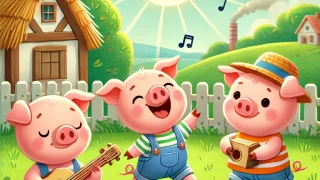Let’s learn avere, another super important Italian verb! It means “to have” and is also used to express many things like possession, feelings, and age. Here’s how beginners can start using it:
1. Conjugation in the Present Tense
| Subject | Avere (to have) |
|---|---|
| Io | ho (I have) |
| Tu | hai (You have) |
| Lui/Lei | ha (He/She has) |
| Noi | abbiamo (We have) |
| Voi | avete (You all have) |
| Loro | hanno (They have) |
2. Basic Uses of Avere
Avere is used to talk about:
- Possession
- Feelings or states
- Age
3. Examples of Possession
Use avere to say what you or someone owns:
- Io ho un libro. (I have a book.)
- Tu hai una macchina? (Do you have a car?)
- Noi abbiamo due gatti. (We have two cats.)
4. Feelings or States
In Italian, avere is used to express certain physical states or feelings where English uses “to be”:
- Io ho fame. (I am hungry. / Literally: I have hunger.)
- Lei ha freddo. (She is cold. / Literally: She has cold.)
- Noi abbiamo sete. (We are thirsty. / Literally: We have thirst.)
- Loro hanno paura. (They are afraid. / Literally: They have fear.)
5. To Talk About Age
In Italian, you use avere to talk about age:
- Io ho 30 anni. (I am 30 years old. / Literally: I have 30 years.)
- Quanti anni hai? (How old are you? / Literally: How many years do you have?)
- Mia sorella ha 10 anni. (My sister is 10 years old.)
6. Practice Sentences for Beginners
- Io ho una penna. (I have a pen.)
- Tu hai un cane? (Do you have a dog?)
- Noi abbiamo una casa grande. (We have a big house.)
- Lui ha fretta. (He is in a hurry. / Literally: He has hurry.)
7. Common Expressions with Avere
Here are some everyday phrases to remember:
- Avere fame = To be hungry
- Avere sete = To be thirsty
- Avere caldo/freddo = To be hot/cold
- Avere sonno = To be sleepy
- Avere paura = To be afraid
Start practicing by combining these forms with simple vocabulary. For example:
- Io ho una bicicletta. (I have a bicycle.)
- Lei ha freddo. (She is cold.)




















